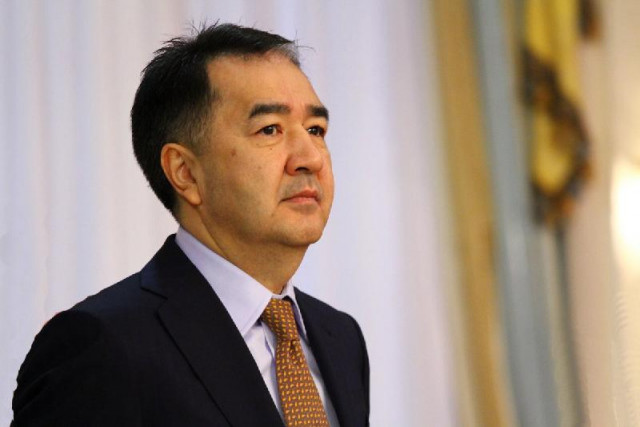Kazakhstan makes former deputy PM new prime minister
A teacher and economist by training, Bykytzhan Sagintayev was governor of the northern region of Pavlodar

Bykytzhan Sagintayev. PHOTO: REUTERS
Massimov, who had led the cabinet since 2014 was dismissed and made the Central Asian country's internal security chief Thursday, on the back of a summer that saw a spike in homegrown radical violence.
US-Russian crew lands in Kazakhstan after 172 days in space
The appointment of Bykytzhan Sagintayev as premier temporarily ends speculation that Dariga Nazarbayeva - Nazarbayev's 53-year-old daughter - might take up higher office.
Some analysts suggested Dariga could succeed her 76-year-old father as president after she was made deputy premier in 2015, although Nazarbayev has given no indication of a successor.
Nazarbayev, who came to power before independence in 1991, said Friday that the cabinet as a whole would not undergo major changes as it is "carrying out its work during a difficult period."
Belarus, Kazakhstan assure Pakistan of support for Nuclear Suppliers Group bid
A teacher and economist by training, Sagintayev was governor of the northern region of Pavlodar and deputy chairman of Nazarbayev's Nur Otan party before becoming trade and development minister in 2012.
He had served as deputy prime minister since 2013.
Kazakhstan, Central Asia's largest economy, has suffered a rare period of turbulence after its currency collapsed on the back of weakened oil profits and financial distress in Russia.
In June, four civilians and three soldiers were killed in the western city of Aktobe when assailants attacked gun shops and tried to storm a military base in a bus they had hijacked.
Belarus, Kazakhstan assure support for Pakistan’s NSG membership: Fatemi
Security forces killed 18 people suspected of involvement in the Aktobe incidents.
The following month, attacks by a gunman left at least eight people dead, mostly policemen, in the country's largest city Almaty.
In April and May, rare protests took place in several parts of the country of 18 million people against proposed land reforms, prompting the president to postpone the changes.



















COMMENTS
Comments are moderated and generally will be posted if they are on-topic and not abusive.
For more information, please see our Comments FAQ